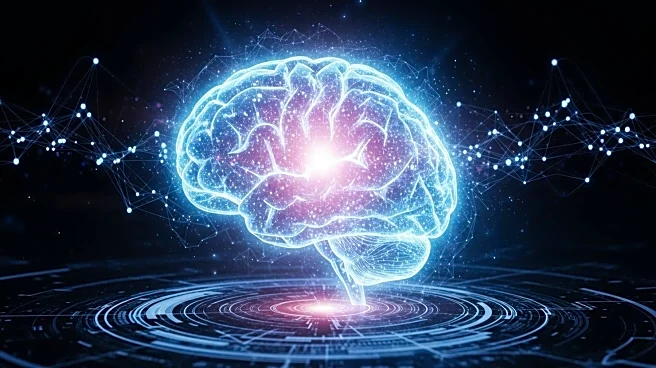What's Happening?
Top YouTube creator MrBeast, also known as Jimmy Donaldson, has expressed concerns about the potential impact of artificial intelligence (AI) on the livelihoods of content creators. MrBeast, who is ranked as the number one creator on Forbes' 2025 list with $85 million in earnings and 634 million followers, shared his worries on social media. He questioned how AI-generated videos might affect the millions of creators who rely on content creation for their income, describing the situation as 'scary times.' His comments come in the wake of OpenAI's launch of Sora 2, an audio and video generator that allows users to create AI content, including videos, which has quickly gained popularity. YouTube has also integrated AI into its platform, offering tools that enable creators to generate AI videos and apply different styles to their content. Despite his concerns, MrBeast has previously engaged with AI, having released a tool for creating video thumbnails using AI, which he later removed following backlash.
Why It's Important?
The concerns raised by MrBeast highlight a significant issue facing the content creation industry as AI technology advances. The potential for AI to automate video creation poses a threat to creators who depend on their unique content for income. This development could lead to a shift in the industry, where AI-generated content becomes more prevalent, potentially reducing the demand for human-created content. Smaller creators, in particular, may feel the impact more acutely, as they might struggle to compete with AI's efficiency and cost-effectiveness. The situation underscores the need for discussions around the ethical use of AI in content creation and the importance of transparency in disclosing AI-generated content to maintain audience trust.
What's Next?
As AI technology continues to evolve, the content creation industry may need to adapt by finding ways to integrate AI while preserving the value of human creativity. Platforms like YouTube might implement policies to ensure transparency in AI usage, requiring creators to disclose when AI tools are used in content production. Additionally, creators may need to focus on developing skills that complement AI, such as storytelling and audience engagement, to differentiate their content. The industry could also see the emergence of new business models that leverage AI while supporting human creators, potentially leading to collaborations between AI developers and content creators.
Beyond the Headlines
The rise of AI in content creation raises ethical questions about the authenticity and originality of content. As AI-generated videos become more sophisticated, distinguishing between human and AI-created content may become challenging, potentially affecting audience perceptions and trust. This development could lead to a cultural shift in how content is consumed and valued, with audiences becoming more discerning about the sources and methods of content creation. The industry may also face legal challenges related to copyright and intellectual property rights as AI-generated content blurs the lines of ownership and authorship.










